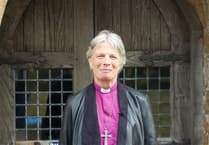The UK’s National Parks have become the first in the world to join the UN-backed ‘Race to Zero’ initiative.
This means thet are committing to drive action to halve carbon emissions within their landscape by 2030 and become significant net carbon sinks by 2050.
National Parks will work with partners to transform an area of land almost four times the size of London (610,000 hectares) into a haven for nature through nature-friendly management across the 15 National Parks, as well as driving significant increases in the use of sustainable travel, renewable energy and sustainably-produced food.
This net zero pathway will involve:
• Restoring nature on a huge scale, increasing the ability of the land to sequester carbon by bringing 610,000 hectares of land into nature-friendly management. This will include:
- Restoring 168,000 hectares of damaged peatland (7 per cdnt of all land area within the National Parks).
- Introducing regenerative agriculture practices to 224,000 hectares of land (10 per cent of all land area within the National Parks).
- Creating 218,400 hectares of new woodland (9 per cent of all land area within the National Parks).
• A transition to sustainable and more locally grown food, halving emissions from food eaten in National Parks by 2050.
• Increasing energy efficiency, reducing energy-related emissions from buildings, transport and industrial processes to near zero by 2050.
• A transition to sustainable travel to and from National Parks, reducing visitor travel emissions to near zero by 2050.
There are already a wide range of projects already underway across the National Parks which support the land use changes needed to reach net zero and deliver the accompanying benefits.
This includes Our Food 1200, a community benefit society in Bannau Brycheiniog National Park using agroecological techniques to grow fruit and vegetables for local markets.
Catherine Mealing-Jones, CEO of Bannau Brycheiniog National Park Authority said: “National Parks are as vital today as we tackle the urgent issues of dealing with the changing climate and the need for nature recovery as they were 75 years ago when just as now, they were a source of respite and inspiration for everyone.
“UK National Parks are proud to be joining the global initiative Race to Zero, showcasing our key role in storing carbon in our wonderful landscapes and our determination to work together with farmers, local communities and visitors to shape a sustainable future for all."



.jpeg?width=209&height=140&crop=209:145,smart&quality=75)

Comments
This article has no comments yet. Be the first to leave a comment.